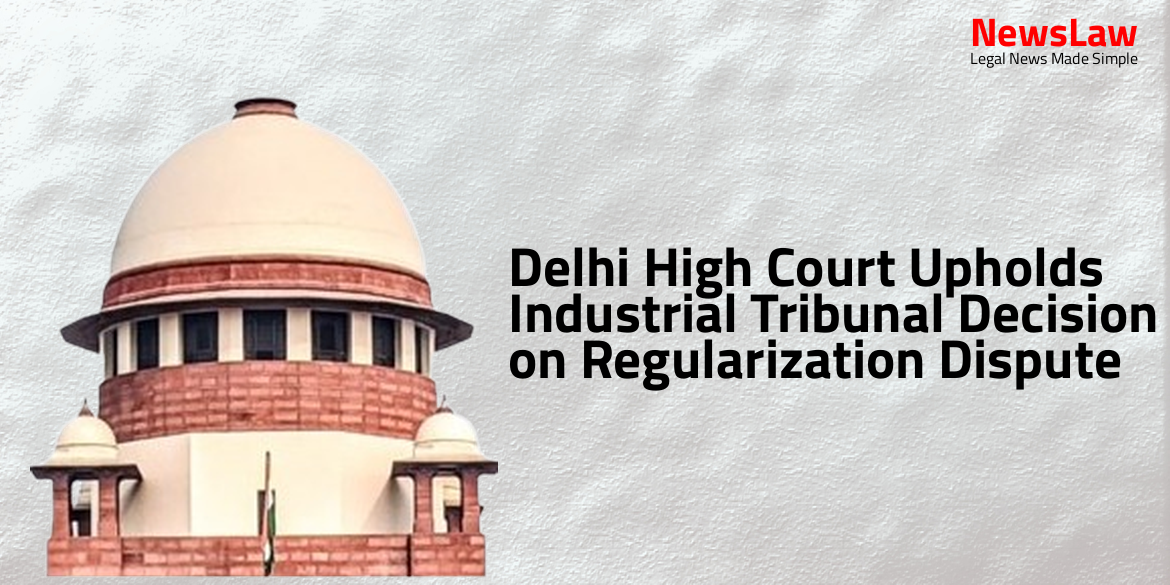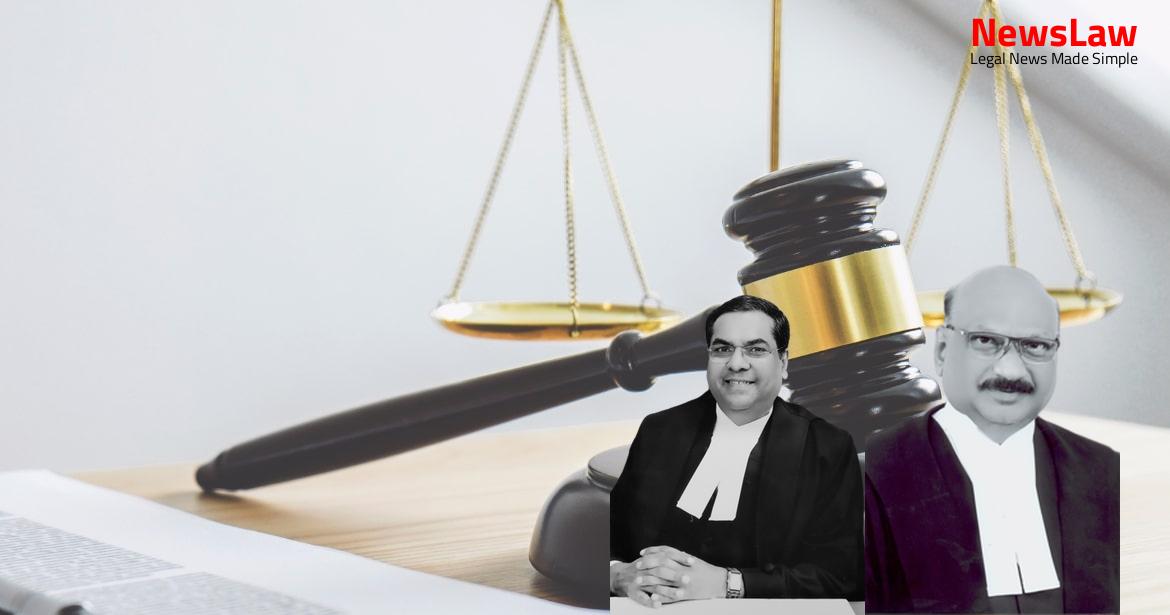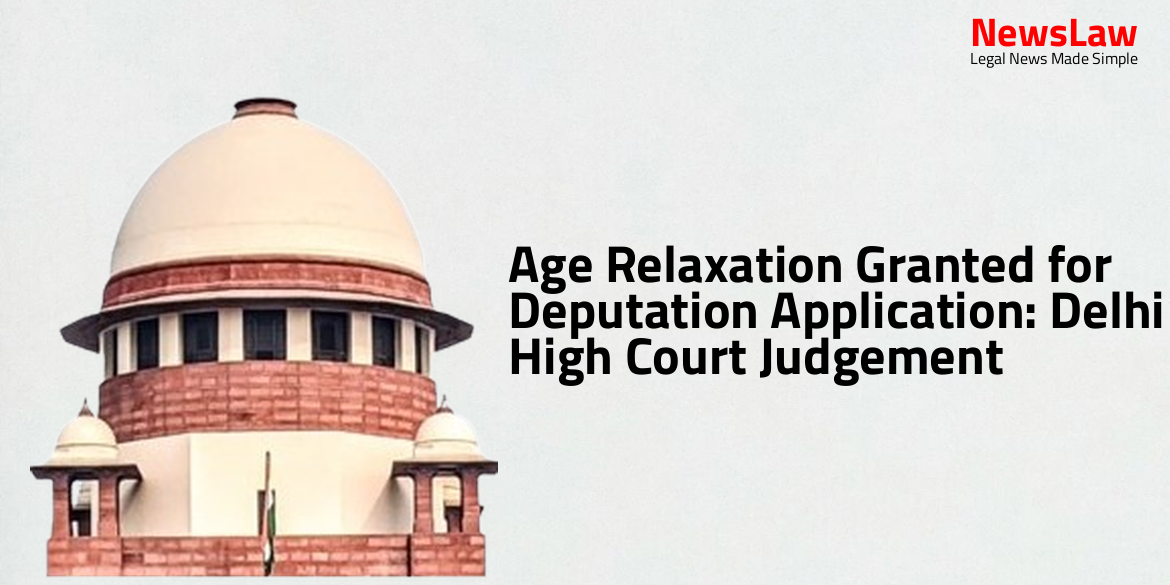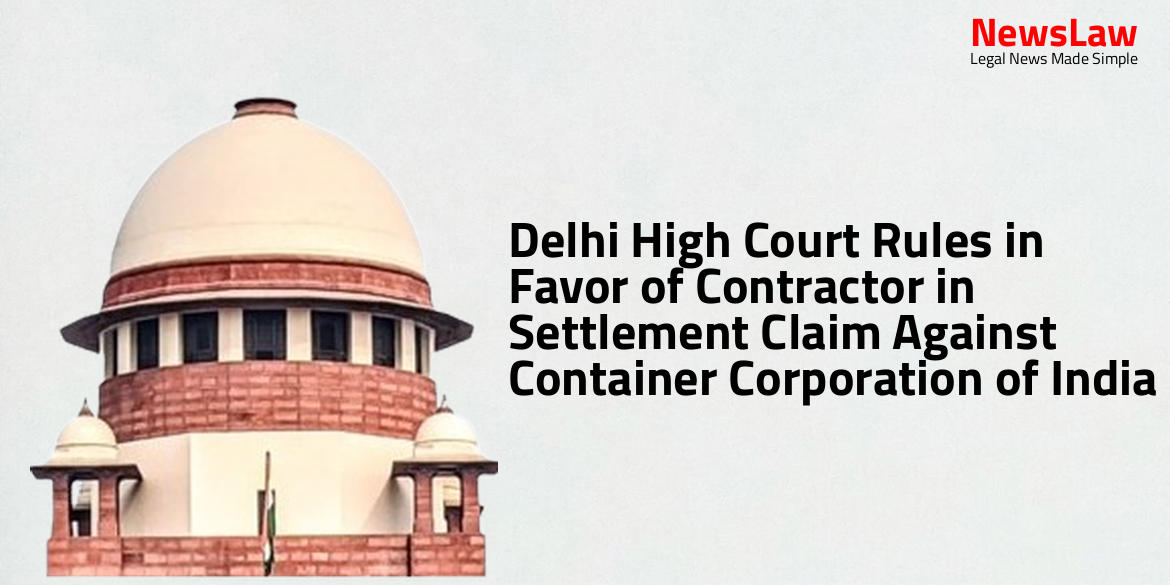In a significant legal development, the Delhi High Court has rendered a decision upholding the Industrial Tribunal’s ruling on the regularization dispute involving the management and workmen. This decision carries implications for the treatment of contractual workers and the enforcement of fair labor practices. The judgment provides clarity on the rights of employees and addresses concerns raised by the workmen. Stay tuned to learn more about this crucial legal case.
Facts
- The petitioner entity emerged in 2012 from the trifurcation of the Municipal Corporation of Delhi.
- The petitioner entity is responsible for municipal services within its territorial jurisdiction.
- Between 2010 and 2015, the petitioner entity engaged the respondent workmen on a contractual basis as Malaria Field Workers (MFW).
- The matter of regularization of services was referred to the Industrial Tribunal after failed conciliation.
- The Industrial Tribunal passed an award in favor of the respondent workmen for regularization at par with permanent field workers.
- The petitioner entity filed a writ petition seeking to set aside the Industrial Tribunal’s award.
- The counsel for the petitioner entity contended that the award was passed without considering all evidence and circumstances of the case.
- It was argued that the respondent workmen were appointed on a contractual basis and were governed by their appointment letters, not entitled to regularisation.
Issue
- Management employed Sandeep Yadav and others as casual workers from 2010 to 2016 till date as raised by the Municipal Employees Union.
- Question raised on the legality and justification of the management’s actions.
- Union demanding payment of arrears based on ‘Equal pay for Equal Work’ principle for the mentioned period.
- Issue of fairness, legality, and justification of the demand for arrears and consequential benefits.
- Need for directions to be issued in the matter.
Arguments
- The petitioner entity argued that the impugned Award was passed without considering all evidence and facts of the case.
- They contended that the respondent workmen, though working similarly to regular employees, were contractual workers and thus not entitled to regularization.
- The petitioner entity raised objections based on landmark cases like Secretary, State of Karnataka Vs. Uma Devi, stating that contractual employees cannot seek regularization.
- They argued that the Industrial Tribunal erred in granting equal pay for equal work and regularization to the respondent workmen, as contractual and regular appointments are distinct categories.
- The petitioner entity also highlighted the financial burden that regularization would impose on them.
- They contended that the Tribunal should not interfere with the management’s policies unless there is a gross violation of constitutional principles.
- In response, the respondent workmen argued that the impugned Award was rightfully adjudicated, considering established laws and evidence.
- They emphasized that the respondent workmen were subjected to unfair labor practices by not receiving equal pay and status as regular employees.
- The respondent workmen asserted that the Tribunal had the authority to grant regularization to contractual employees.
- The respondent workmen objected to the petitioner entity’s plea for re-examination of evidence under the writ jurisdiction, stating that such interference is limited.
- They argued that the Tribunal rightly held the respondent workmen eligible for regularization and proper wages, as they were working against vacant regular posts.
- The respondent workmen cited cases like Sheo Narain Nagar & Ors vs State of Uttar Pradesh & Ors to support their claim for regularization.
- They refuted the petitioner’s contentions based on Uma Devi and other cases, stating that unfair labor practices need to be remedied regardless of contractual agreements.
- The respondent workmen pointed out that the contractual nature of employment does not preclude the claimants from workman status as per the Industrial Disputes Act.
- Overall, the respondent workmen argued that the petition lacks merit and should be dismissed for attempting to deny rightful relief to the claimants.
- Workmen claimed to have worked continuously for over 5 years in the establishment of the petitioner.
- Respondent workmen argued that any action against them would burden the management financially.
- Management asserted that the workmen agreed to work on a contractual basis until regular staff were appointed by the designated Board.
- Petitioner management pointed to the judgments of the Hon’ble Supreme Court in Uma Devi (Supra) stating that public employment policy does not allow regularization of contractual employees for regular posts.
- Workmen were appointed through an open advertisement and proper selection process conducted by the designated Board.
Analysis
- The management admitted the long and continuous employment of the claimants in its establishment
- The claimants are seeking regularization of their service with all consequential benefits
- The industrial and labor courts have statutory powers which were not affected by the Uma Devi case
- The unfair labor practices faced by the claimants due to prolonged temporary employment justify their claim for regularization
- Employees engaged on a temporary basis cannot be denied equal pay and conditions as regular employees as per constitutional rights and Article 14
- The Industrial Tribunal has the power to provide relief beyond common law or contract terms, including conferring rights and privileges
- The management’s argument of financial burden due to regularization cannot be a ground when workmen are entitled to permanency or higher pay
- Accepting employment as contractual employees does not exempt the employer from ensuring equality in pay as mandated by Article 14 of the Constitution
- The Tribunal’s role is to adjudicate within the terms of reference, with a wide power to grant proper relief in particular circumstances
- The management’s duty to pay appropriate remuneration to employees is a constitutional right of citizens
- Financial strain on the state exchequer is not a valid argument when workmen are entitled to permanency or higher pay
- The Tribunal ventured beyond the terms of reference by adjudicating on the issue of regularisation, which was not part of the original reference.
- The Tribunal relied on a judgment incorrectly as it did not stay within the scope of the reference, leading to an erroneous decision.
- The Tribunal found that the claimants, who were working as contractual employees, were subject to unfair labor practices, being denied benefits of permanent employees despite performing the same work.
- The Tribunal incorrectly applied a judgment that was not applicable to industrial workers in this case.
- The Industrial Tribunal’s power is limited to the terms of reference provided by the appropriate government, and it cannot go beyond those terms.
- A direction was issued to the management to regularize the claimants’ services from their initial appointment as permanent field workers and provide consequential service benefits.
- The Tribunal correctly determined that the union properly espoused the cause of the claimants and they fall within the definition of ‘workman’ as per the Industrial Disputes Act, 1947.
- The Tribunal’s decisions on Issue no. 1 were upheld and did not require interference.
- The Supreme Court’s stance on Labor Courts having limited jurisdiction and not being able to go beyond the terms of reference was discussed.
- The Tribunal was found to have exceeded its jurisdiction by commenting on the regularisation aspect and validity of the reference, which it was not empowered to do.
- The impugned Award is held to be suffering from patent illegality due to the Tribunal going beyond the scope of terms of reference.
- The Tribunal’s decision to regularize the services of the workmen was deemed to be an error apparent on the face of the record.
- Such transgression of terms of reference by the Tribunal is in contravention to established jurisprudence of Labour Laws.
- The impugned award is partially set aside specifically regarding the issues related to regularizing the services of the workmen.
Decision
- The case is remanded back to the Industrial Tribunal for adjudication on certain issues
- The Tribunal is directed to consider the observations of the Court
- Adjudication should be done expeditiously within six months
- The judgement is to be uploaded on the website immediately
- The petition is disposed of along with any pending applications
Case Title: MUNICIPAL CORPORATION OF DELHI Vs. SANDEEP YADAV AND ORS (2024:DHC:4704)
Case Number: W.P.(C)-14839/2023



